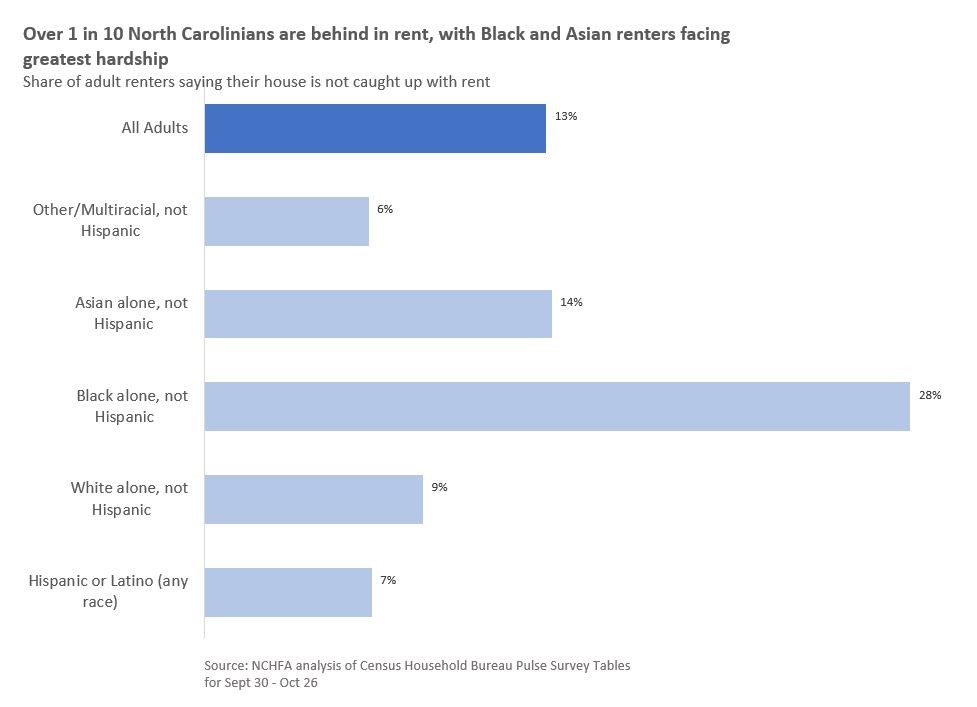
More than 300,000 North Carolinians were behind on rent as of late October, according to recent US Census Bureau data. That number could increase in the coming months with 25% of renters having expressed little confidence in their ability to pay rent in November and a high likelihood they will face eviction in the next two months.
The Census Bureau’s Household Pulse Survey, launched in April, has provided weekly data on the impacts of the pandemic through the end of October. Nationwide, the Household Pulse data show an estimated 11.5 million adults or 1 in 6 renters, were not caught up on rent in late October. However, a large share of survey respondents did not answer the housing questions in the latest survey. Non-response rates were higher among groups more likely to struggle to pay rent—renters that are younger, with lower education, and whom identify as Black or Latino—which suggests the data may underestimate the number of people struggling with rent.
Black and Asian renters are more likely to face housing instability: 28% of Black renters were behind on rent compared to 9% of white renters (See Figure 1).
FIGURE 1

In addition, a higher share of Latino and Black renters had little or no confidence in their ability to pay rent and thought it was very likely they would be evicted in the next two months.
FIGURE 2

Even so, renters have managed to get by in the past couple months thanks to flexibility from their landlords, government supports and other sources of funds. In North Carolina, the Housing Opportunities and Prevention of Evictions (HOPE) Program—which was funded through the US Department of Housing and Urban Development Community Development Block Grant − Coronavirus Response and the US Department of Treasury Coronavirus Relief—offered rent and utility assistance to low- and moderate- income renters. By the time applications closed on November 11, nearly 43,000 North Carolinians had applied.
After exhausting unemployment benefits, one-time stimulus payments and government relief programs, many renters have turned to unstable and unsustainable sources of funds like credit cards and borrowing from friends and family to pay rent. In the last week of October, 33% of the renters who reported having little or no confidence in their ability to pay rent borrowed money from friends and family to meet spending needs while 18% relied on credit cards or loans. Thus, even if they do keep up with payments, some renters will be saddled with additional debt that could impact their future financial health.
The financial uncertainty revealed by the survey data suggest evictions could ramp up after December 31, when the CDC eviction moratorium is set to expire.